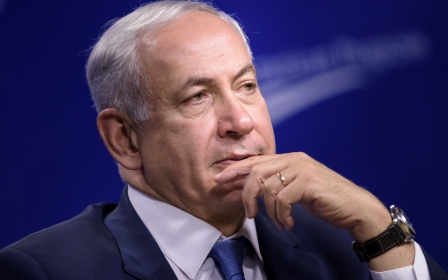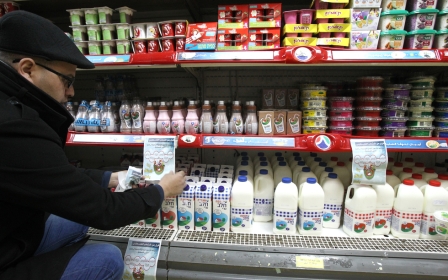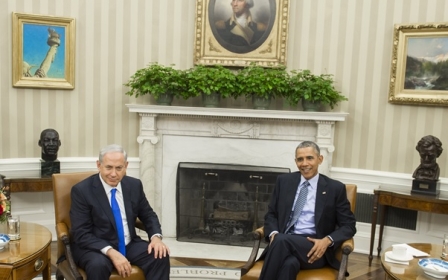EU labelling of Israeli goods is a political game changer

The European Commission has for years been debating the proposal to require a proper labelling of products from the illegal Israeli colonies (referred to by many as settlements), and finally decided on 11 November to implement the policy. Israeli companies are used to labelling their products exported to Europe as “made in Israel” even if they come from the illegal colonies.
Although the EU doesn’t officially recognise the colonies as part of Israel, this procedure, which is effectively applied in all the European-Israeli trade agreements, allows companies operating there to pay lower customs and receive other benefits while exporting to Europe. It also made it impossible for consumers in Europe to tell the difference between goods from Israel and goods from the illegal colonies.
The logic behind the demand to label goods from the colonies is to apply European law consistently (i.e. to properly distinguish between Israel and the occupied Palestinian territories, or OPT), to respect the right of consumers to be informed about the origin of their products, and to apply pressure on the Israeli government to end the occupation and allow an independent Palestinian state to emerge.
International law clearly forbids the exploitation of resources (such as land and water) of an occupied area by the occupier. The facts are that a large percentage of exported Israeli fruits and vegetables are grown in the occupied Jordan Valley (which is one of the most fertile areas of Palestine), and that heavily-subsidised industrial zones in Atarot, Mishor Edumim and Barkan (among others) bisect the West Bank and cause pollution of Palestinian land and water. The profits from the exports of these goods are what Shlomo Swirski from the Israeli Adva Institute calls “peace disincentive”. It also makes European consumers of goods from the colonies accomplices in a crime.
Practical considerations
The new policy joins an already existing policy from January 2014, a set of guidelines that the EU published to ensure that no European funding would reach the illegal colonies. These guidelines caused an uproar in Israel, but nevertheless were skirted by the Israeli government with ease. Then-economy minister Naftali Bennet boasted that he created special funds which would be eligible for European funding by promising that money from these funds would not be invested in the colonies, while the Israeli government would use its own budget to compensate institutions in the colonies and ensure that they would receive the same (if not a greater) amount of funding offered to institutions inside Israel proper.
The main project that was discussed in the context of the 2014 guidelines was Horizon 2020, a pan-European research project of extreme importance to Israeli universities and research and development departments in Israel’s largest companies. Among the Israeli institutions that won funding from Horizon 2020 funding are: (1) Elbit Systems; (2) Israeli Aerospace Industries (IAI); and (3) the Technion University. Although the three institutions do not have their headquarters in the OPT, all three of them research and develop weapons for the Israeli military and the police, which are used against Palestinians in the OPT and in the defence of the illegal colonies. The choice of these two companies and one university by Horizon 2020 was a clear signal to Israel that the 2014 guidelines were little more than lip service, while the EU remains complicit in Israel’s occupation.
Labelling of goods from the colonies, unfortunately, is not a policy with any more teeth than the 2014 guidelines. It is a mere “recommendation” and each state must decide if and how to apply it. Israeli companies operating illegally in the OPT can (1) produce combined products, in which components are produced inside Israel or imported, and other components are produced in the illegal colonies.
They then label their products as “made in Israel” and continue to export the components which were produced in the West Bank. Or (2) they can rent a small office or warehouse inside Israel’s international borders, and use the address of that office or warehouse as the official address of their company. Even if the main production facilities or agricultural fields are in the West Bank, the European Union has no mechanism to verify the validity of the claim from these companies that the products were produced in Israel.
Finally (3) they may choose to comply and properly label its products, possibly hoping to market it to pro-occupation consumers, and at the same time receive compensation from the Israeli government for any extra customs which they will be asked to pay.
Reception in Israel
Although the policy of labelling products from the colonies is mainly symbolic, its effects on the Israeli political discourse are not. As the guidelines were approved in January 2014, Israeli politicians, businesspeople and academics responded in panic. Bennet called the move “an act of economic terrorism”. Now-Vice Minister of Foreign Affairs Tzipi Hotoveli said that the policy “rewards terror,” and Knesset member David Bitan proposed a bill to offer special subsidies to exporters from the colonies, a move which would actually make it easier to identify such exporters and label them properly. Netanyahu compared the policy to Nazi policies against Jews.
Israeli newspapers responded with a mix of reactions, ranging from dismissing the policy as toothless, to warning against deteriorating relations between Israel and Europe, to declaring that policy is part of the boycott movement against Israel, to calling it anti-Semitic.
Therefore, even though the economic significance of the EU move is negligible, its political impact is immense. The European delegates who promote this policy are not (yet) supporters of the boycott movement against Israel, but they effectively advance the cause of the boycott movement by triggering a debate inside Israeli society about the relationship between the occupation and violations of international law on one hand, and Israel’s economic situation on the other.
- Shir Hever is a graduate student at the Free University of Berlin, and an economist with the Alternative Information Centre.
The views expressed in this article belong to the author and do not necessarily reflect the editorial policy of Middle East Eye.
Photo: Jewish settlers clash with Israeli police.
Middle East Eye propose une couverture et une analyse indépendantes et incomparables du Moyen-Orient, de l’Afrique du Nord et d’autres régions du monde. Pour en savoir plus sur la reprise de ce contenu et les frais qui s’appliquent, veuillez remplir ce formulaire [en anglais]. Pour en savoir plus sur MEE, cliquez ici [en anglais].





